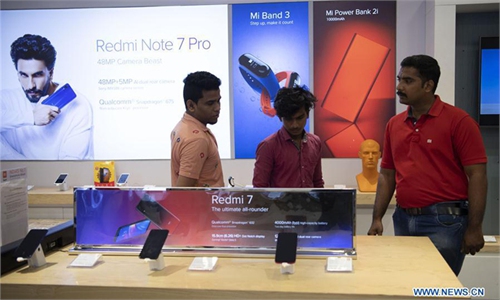COMMENTS / EXPERT ASSESSMENT
India's Chinese app ban will hurt Indian IT workers and escalate tensions

Moaaz Awan
The recent stand-off between China and India has made headlines around the world, especially since it turned ugly and resulted in unfortunate casualties on both sides. Although calm minds from both should have dominated the waves to de-escalate the situation, we saw a very different trend fueled by a segment of the Indian media. A nationalistic hype is being generated by the mainstream media which has the potential to transform into a nationalistic frenzy. Though unfortunate events occurred at the border, the situation must not be turned into an opportunity for warmongers.On Monday, a government press release announced a ban stating: "The Ministry of Information Technology, invoking it's power under section 69A of the Information Technology Act read with the relevant provisions of the Information Technology (Procedure and Safeguards for Blocking of Access of Information by Public) Rules 2009 and in view of the emergent nature of threats has decided to block 59 apps since in view of information available they are engaged in activities which is prejudicial to sovereignty and integrity of India, defence of India, security of state and public order."
Since the ban has been enacted, Apple and Android stores are uncertain how to interpret and execute it as it targets such a wide variety of apps and affects millions of users. It is important to note that Chinese smartphone makers command more than 80 percent of the smartphone market in India, which is the world's second largest. Xiaomi, Oppo, and Vivo are all household names in India. These mobile brands have entered India not through incentivized policies but through vigorous competition and by providing users with the best products at the lowest costs.
Let's have a look at the numbers, which are quite extraordinary. Tarun Pathak, an analyst at digital research firm Counterpoint, reportedly said the order would impact roughly one in three smartphone users in India. According to a top mobile insight firm, TikTok, Club Factory, UC Browser and other apps together had more than 500 million monthly active users in May 2020. Some experts in the industry roughly estimate the total number of active users of these 59 apps could be over 800 million. A technology insider revealed that 27 of the 59 apps were among the top 1,000 Android apps in India last month.
But let's not get the facts wrong here. India as a sovereign state has the right to ensure its citizens' data privacy, but there are many other ways of doing that. Take TikTok as an example. If India had any legitimate concerns about the company's data handling it could have asked TikTok and others to shift their data servers into India, bringing them under the regulations of Indian authorities. It is also surprising how the likes of Sweet Selfie and Youcam Makeup can be categorized as threats to national security when all they do is to make people's selfies look better. Unfortunately, instead of making real efforts to ensure user data privacy, the ban seems more politically motivated. There have been growing calls in India to boycott "Made in China" products, but that is not possible, at least under the present circumstances. Since the Indian government had to be seen doing something, the easy way out was banning these mobile apps.
In the age of digital technologies, coupled with worldwide lockdowns, mobile apps have become more of a user commodity rather than a luxury. Banning global apps like TikTok and SHAREit will not only affect these companies but also the thousands of Indian IT workers working for these companies. It is also a step toward slowing down globalization, which has proven extremely beneficial for both Asian nations. It is definitely not a step in the right direction and does not help with the agreement reached between the two countries to deescalate tensions and strive for the normalization of relations.
The author is a researcher at Tianjin University. bizopinion@globaltimes.com.cn



